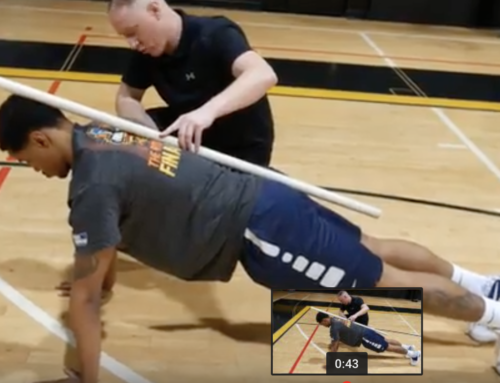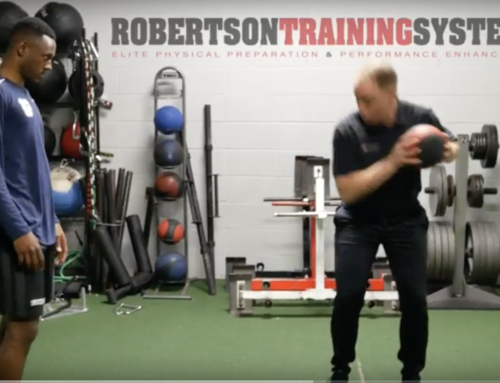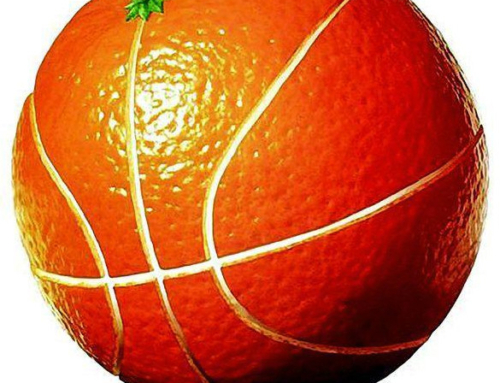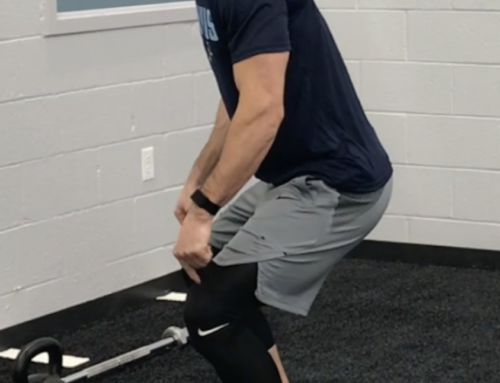Real Food First – Supplement Strategies For Basketball Nutrition
By Jayson Hunter, Registered Dietician, Owner JayLabPro
Food First
My approach that I’ve always taught is nutrition comes first.
You want to build that nutritional foundation. Now with that being said, no one has a perfect nutritional foundation. Regardless whether they’re an adult or young athlete, do you eat fish five times a week? Do you eat cold water fish more specifically five times a week? If you don’t well then you’re probably coming up a little short on EPA and DHA (the essential fatty acids). That’s where a supplement comes into play because it helps fill in those gaps or those weaknesses and that foundation.
Another example would be fruits and vegetables. Are you eating five to six different colored fruits and vegetables seven to eight every single day? Most people aren’t. Even the people that are eating the best.
Are you missing out on a few vitamins and minerals because there are so many of them out there you have to eat? You can’t eat just green beans every day because you’re going to be deficient in other vitamins and minerals. You need to have oranges and reds and things like that so that you can get those other vitamins in. That’s where a good whole food based multi-vitamin comes into play once you’ve established that foundation.
A supplement’s designed to help fill in those weaknesses, reinforce that foundation just to make it a more complete, stronger foundation. That’s the approach that I take with nutrition and supplementation, is you’ve got to get the food down first because if you want the supplements to actually benefit you, you have to have the foundation in place or else all it’s going to be doing is trying to fill in deficiencies which isn’t going to be enough to do it anyways which means they’re not going to do anything. You’re not going to see a health benefit.
I know I hear a lot of times from athletes, again ranging from middle school age in particular up through high school age and even college age and whatnot, once you’d probably consider them technically an adult – they find supplement X, Y or Z and they think that miraculously they’re going to take that and it’s going to be a game changer; that’s the difference between them reaching whatever level they want, improving their speed, improving their body composition, building muscle, losing fat, increasing their energy, whatever they may be searching for. I think that’s a key point. You talk about the foundation piece in terms of building it first.
Eat Enough Food
Regardless of age, sport, or gender, I think the first thing all coaches and athletes should focus on is food intake; it comes down to the macro-nutrients: proteins, fats and carbs. You’re going to have some kids that eat like horses (especially boys – they get a ton of food in). But you could have different kids; some are picky, maybe don’t have big appetites or eat a lot, like to skip meals – others eat! You have parents that go “Man, they’re eating me out of house at home, I can’t keep them out of the cabinets.”
In that situation where they’re just — you know they’re good enough on calories. You’re not worried about that. Now it’s looking at what type of calories are they eating? Is it all chips, donuts and cupcakes, or is it healthy fruits and fiber rich carbohydrates, good sources?
That’s where you’re going to see a performance enhancement, not just in sport but in school. Their energy levels, their brain, everything’s going to start to function better. Their alertness, their mental acuity, and those are all little things that people don’t really think about because it’s hard to measure it. If I say, “Hey, I want you to go run from the free throw line to the half court line? It took you X number of seconds.” That’s measurable. It’s hard to know if someone’s thinking more clearly or thinking quicker on, “Do I go left or right, do I pass it, do I go for the steal?”
That type of stuff is obviously a little harder because it happens in fractions of seconds. That’s where at that age nutrition can be very important in regards to completing the total package and have then that child or that youth athlete optimize their body in regards to whatever sport they’re playing, as well as in school what we call brain power things like that.
The 4 Quadrants
The easiest way to break it down would be take a plate and break it into 4 quadrants.
One quadrant is going to be to a vegetable, maybe even the easiest way to get in a variety of vegetables is what I tell people to do is go buy a frozen bag of mixed vegetables. You’re getting in the different colors; you’re getting the oranges, the reds, the greens. You’re getting a variety in, and more likely to get more vitamins and minerals in that way.
Quadrant 2, is going to be like a starchy carb; rice, potato, sweet potatoes. I’m not going to tell them to go eat a bunch of quinoa because it’s just not something that most kids will eat (if they will, great). Think of trying to get them carbohydrates that they’re going to like, that they’re going to eat.
Then your other two quadrants could be split: either lean protein sources in both quadrants, or even add in more carbohydrates. For a growing young athlete they are still getting a reasonably balanced meal: have a little larger protein, little larger carb, but I am still getting in my good serving of vegetables every day. If you can add in healthy fats through foods like fish and nuts, great, but if not that’s where we’d try to supplement.
It’s amazing, but simply eating enough, really improves a lot of things that are hard to measure but are very important in regards to brain function, and alertness, and acuteity and mental alertness type stuff. If there’s one thing for a coach to impact, it’s to focus on eating more food – that would be that one.
The Picky Eater
The energy you have, the child, the athlete that is a picky eater doesn’t need a lot of calories, you’re still going to try to use the same food example breaking it up. But where you may struggle with is getting them to eat enough of those, because they may be a picky vegetable eater, or they’re not just a big carbohydrate eater.
A good example is my own daughter, she is 10 and a half, and up until maybe six months ago she never ate a hotdog bun, or a hamburger bun, or a sandwich with bread. It’s not that she didn’t like, or she didn’t say “I don’t like the taste” she just never wanted it, and it’s not anything that I did as a dietician saying, “Hey, don’t eat those carbs, do this and that.” It was she just would rather have a hamburger plain with some cheese on it, and she’d just rather have a hotdog or something. You’re going to have kids like that that just have unique personality-type opinions and so forth.
With those kids that’s where maybe making a smoothie with protein powder in it comes into play. Maybe getting a meal replacement shake that actually has protein, carbs, and healthy fats in it. Mix it with milk so again they’re getting some calories in, they’re getting that variety in. That’s where those types of strategies from a supplementation standpoint come into play. You’re still presenting the food first, you’re still trying to get them to eat real food first, but you’re also encouraging or enticing with other things that they might like.
Again with my daughter, she’s not a real big breakfast eater. Never has been. She needs to make sure she’s fueled before she gets to her evening practices. There’s things that I’ll do where I will take some frozen fruit, and even some greens, I’ll even mix in some spinach or things like that and then put in some vanilla protein powder to make a shake.
Again she is getting some variety, she is getting some vegetables, and she is getting vitamins and minerals, she is getting calories in. Mix it with some milk or something, put in some peanut butter. I’ll do things like that where I’ll make up a smoothie for her for breakfast because she is more likely to consume that that eat what I would call real food. You don’t want them drinking every meal, but if I have the choice or the decision to get in maybe 80 calories with eggs, and then not eat lunch until noon, or I can get her some 200/300 calories and a variety of items: minerals, protein, carbs, and fat – I’m choosing that. That’s the better choice in the long run.
I think most importantly a coach or parent needs to think about each person individually: What’s your athlete like? What’s your child like in regards to how they currently eat food? From there you can help them make modifications similar to what I mentioned earlier and help improve their nutrition.
For more information on Jayson and to check out JayLab Pro:
www.jaylabpro.com







Leave A Comment